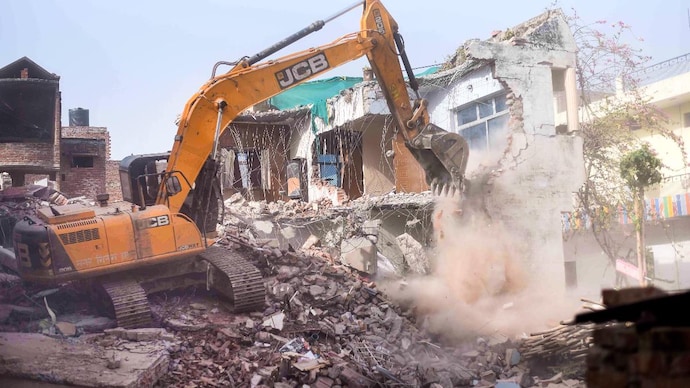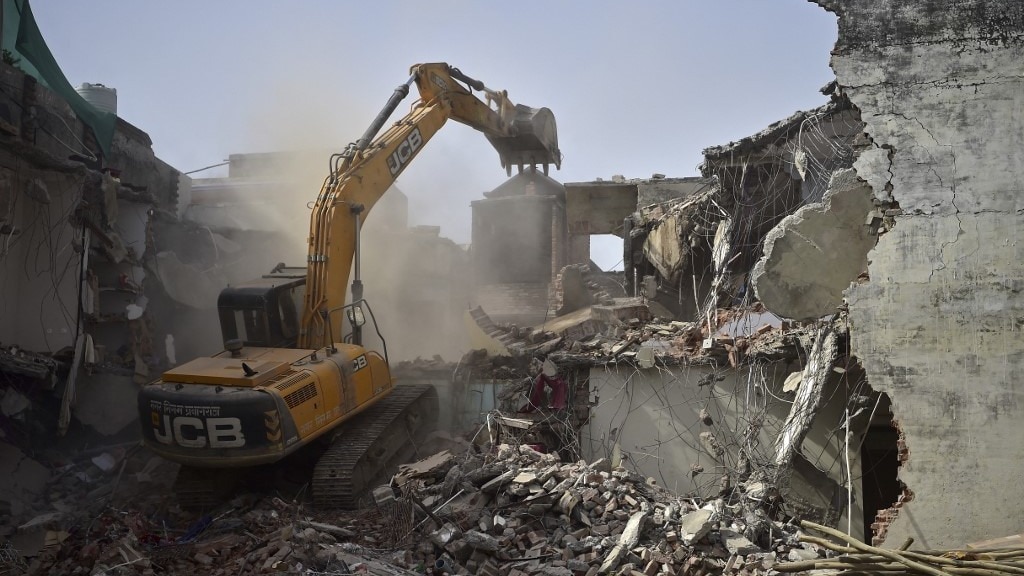The Union Cabinet is scheduled to convene for a critical meeting as the Supreme Court prepares to hear a plea regarding the controversial issue of ‘bulldozer justice.’ This high-profile case has stirred significant public and legal debate, and the outcomes of both the Cabinet meeting and the Supreme Court hearing could have far-reaching implications.

Source:- news 18
The term ‘bulldozer justice’ refers to the use of heavy machinery, such as bulldozers, to demolish properties, often in the context of punitive actions against alleged offenders. Critics argue that such measures, frequently employed in the name of justice, bypass due process and disproportionately affect vulnerable communities. They contend that these demolitions often occur without proper legal proceedings and can result in significant hardship for those affected
Source:- BBC news
The Supreme Court’s upcoming hearing will address a plea challenging these practices, questioning their legality and adherence to constitutional rights. The petitioners are calling for judicial scrutiny to ensure that any actions taken are in line with established legal standards and that individuals’ rights are protected.
In parallel, the Union Cabinet’s meeting is expected to discuss and review policies related to property demolitions and enforcement practices. The Cabinet’s deliberations may involve evaluating current regulations and considering potential reforms to prevent misuse of punitive measures. The outcomes of this meeting could influence future policy decisions and set precedents for how similar issues are managed across the country.
The combined impact of the Supreme Court’s ruling and the Cabinet’s decisions will likely shape the legal and administrative framework surrounding property demolitions and enforcement actions. Both the judiciary and executive branches face the challenge of balancing effective law enforcement with the protection of civil liberties and due process. The developments from these proceedings will be closely watched by legal experts, civil rights advocates, and the public.
Share your views in the comments

